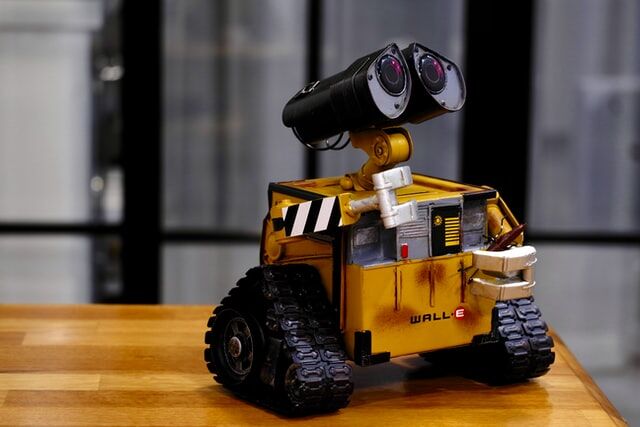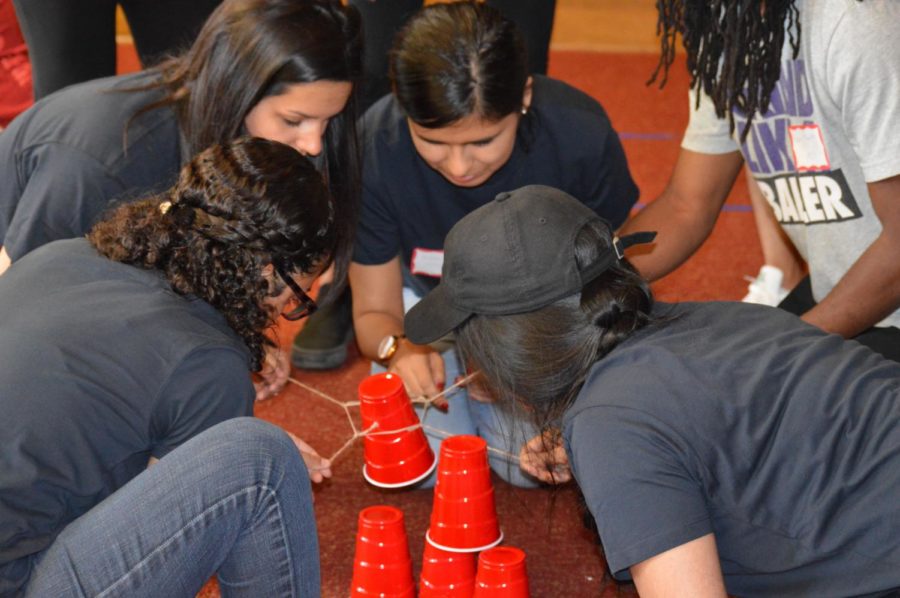Shiralkar: ‘WALL-E’ is a horror movie
Columinst Parth Shiralkar theorizes that “WALL-E,” a popular animated movie by Pixar, is actually a horror movie.
November 1, 2020
Pixar’s ninth feature film, “WALL-E,” was released June 27, 2008. It’s an animated motion picture set 700 years in the future, where the Earth is a garbage-ridden wasteland and its only inhabitants are a cleanup robot called WALL-E and his(?) cockroach friend, Hal. Humans have left the planet on a giant spaceship, the Axiom. “WALL-E” has been consistently ranked among Pixar’s more decent ventures — its popularity also invites nasty hypotheticals and fan theories, like this column. Spoilers ahead.
“WALL-E” is a prima-facie love story/redemption arc with nice elements of typical Pixar narrative. WALL-E is what seems like the last trash-processing robot left on Earth, who meets EVE, a space-traveling robot. They hit it off and put a chain of events in motion that ultimately brings the humans back to Earth. Overall a very enjoyable story, with subtle biblical nods here and there (EVE and the seedling), the movie harbors a sinister subtext to it that usually goes unnoticed.
From the opening scene, the audience sees WALL-E enjoying himself (listening to “Put on Your Sunday Clothes” from “Hello, Dolly!”) as he goes about cleaning debris and trash — a rather odd thing for a robot to do. But then again, it is Pixar, so assuming sentience wouldn’t be too much of a reach. WALL-E then goes on to salvage some treads for himself from a robot lying around and the audience gets a peek into his trailer where he hoards spare parts from dead robots. Note that WALL-E goes on to fall in love with EVE, thus confirming his sentient status.
If WALL-E can feel pain and longing, and since he perceives other robots in a manner akin to how humans view each other, his barefaced actions of stripping his fellow robots for parts do come across as somewhat psychopathic. The audience also sees WALL-E’s collection of trinkets and objects he hoards just to stare at them in wonder, another odd thing for a robot to do. It is well-documented that the sanity of people who remain in isolation for long is at risk of irreparable damage — could the same be true for robots too?
Apart from WALL-E and EVE, we see no other robots on the Earth. What happened to the rest of them over the past 700 years? Perhaps — just a big maybe — WALL-E got rid of them? Despite the puppy eyes, WALL-E has the makings of an essential slasher. He works alone and seeks peace in the mundane. All his peers are dead, leaving him to pick at their cadavers for parts and sustenance. His survival instinct is made clear from scenes like the sandstorm escape and the robot chase inside the ship. Why is WALL-E different? When EVE “fixes” him at the end of the movie by resetting his programming, does it undo some malfunction that lent him consciousness?
WALL-E’s most defining act in the movie is the sequence with the plant. Aboard the Axiom, the captain sees the seedling from Earth. His curiosity piqued and his instincts tickled, the captain dives into research about the planet and determines it’s OK for them to go back. Before interacting with WALL-E, the ship and its passengers were engaged in a life free of thrill, carrying out assigned tasks and duties without any direct threats to their lives. The audience is shown the Axiom and its cargo (sluggish human passengers who have lived in space with no need for effort), which can’t be more in count than a few hundred thousand — the last living human beings. With its hyperfuturistic tech, these people have faced no challenge — and thus no danger — in space.
At the end of the movie, all seems to be well, the humans are returning to where they belong, et cetera. When I mentioned biblical parallels earlier, I failed to mention that, in this scenario, WALL-E would actually be the serpent, whose offering to EVE snatches away the paradise (an unproblematic space journey) from civilization and — by revealing new information to the human race and altering its understanding of the world — forces it to start afresh, in another wretched cycle on Earth. I don’t know, though. Wash your hands and wear a mask.

















